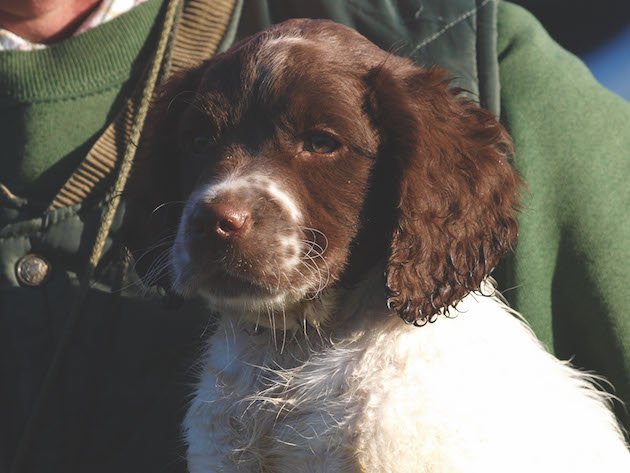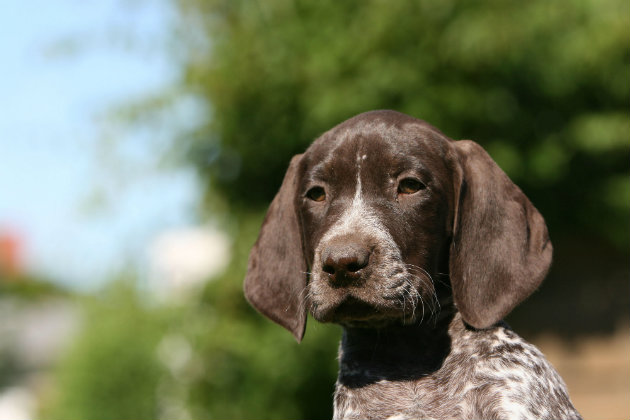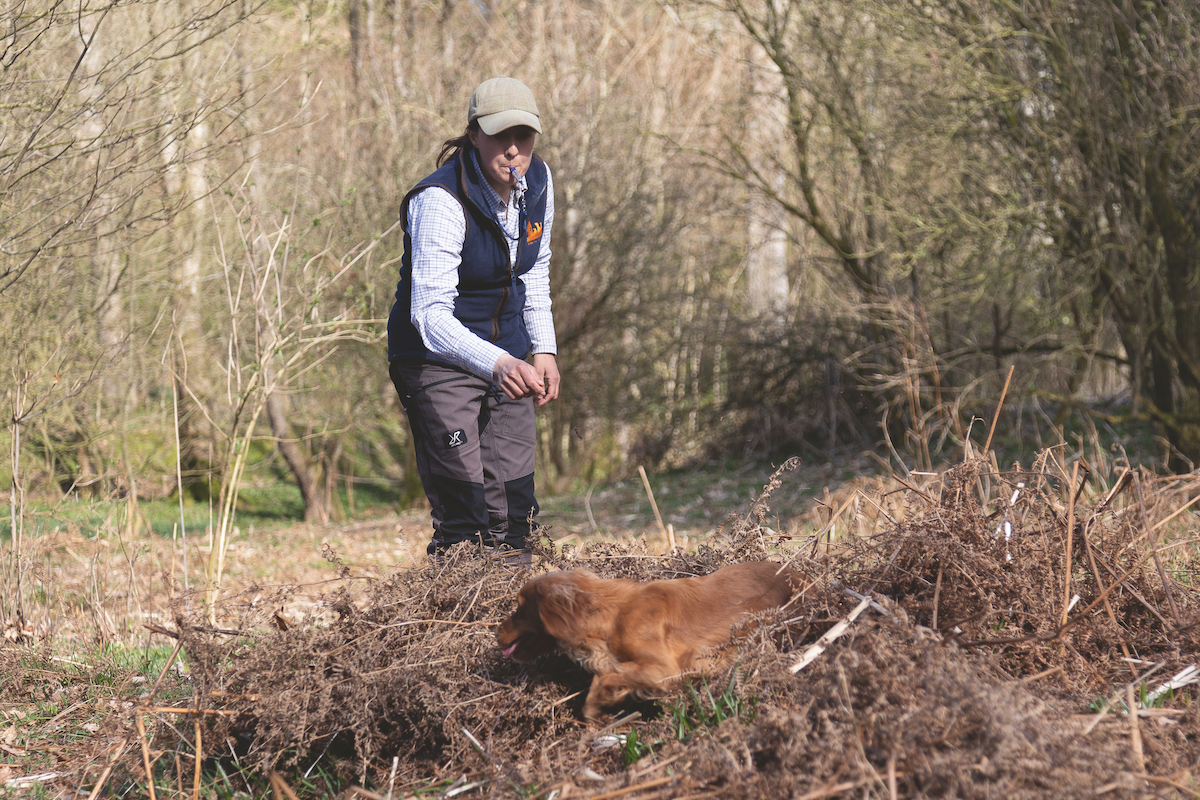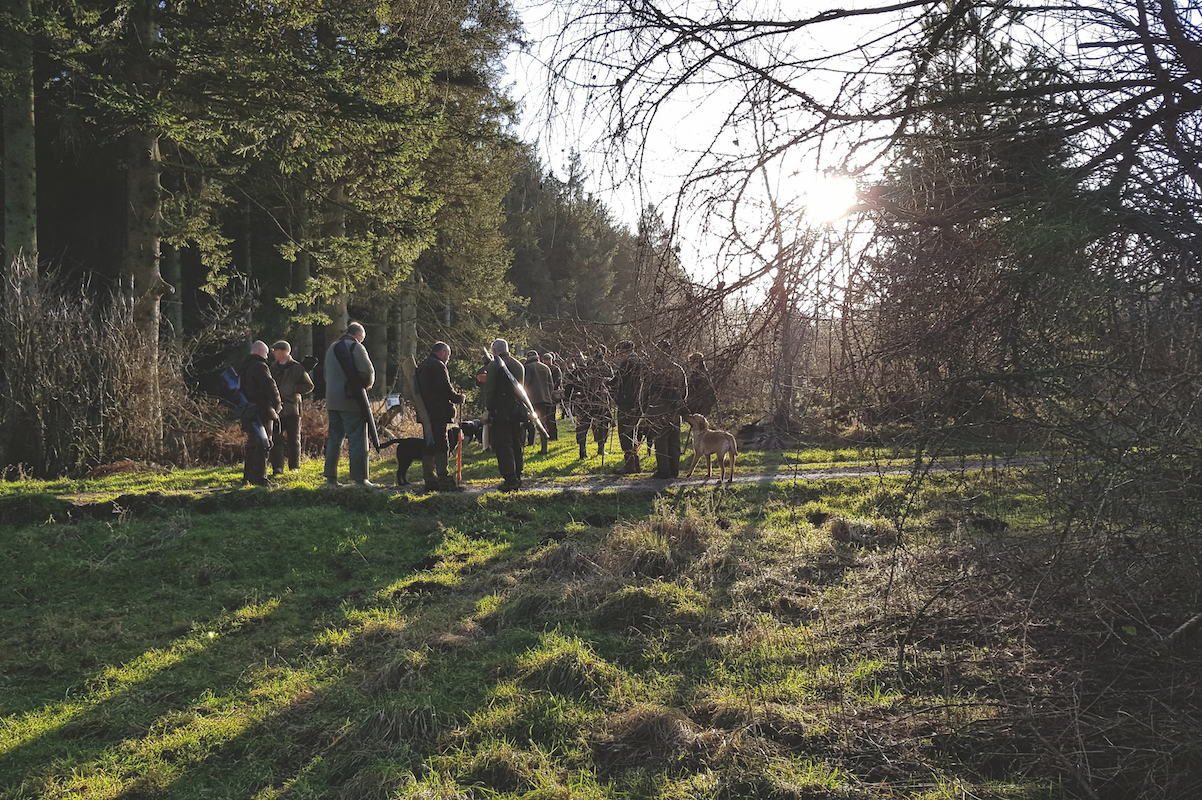Six frequently asked questions about gundog puppies
Breeding, biting, training ... just some of the things you need to know about

Working springer puppies are the bargains of the gundog world
1. Lack of concentration
Q: Last year I bought a spaniel pup with the intention of training him. He settled in at home very well with my older gundog Alfie, who is seven years old. Now the young spaniel is 11 months old I have started to do some training with him, but he does not seem to concentrate on me, looking around instead for Alfie. What do you think I should do?
A: Your young gun dog has bonded with Alfie more than he has bonded with you, the trainer. He spends most of his day around Alfie so doesn’t need you to make any decisions for him. He will look to Alfie and then will follow by example.
The answer: Split the two gundogs up and kennel them separately for a while. Train the young spaniel pup alone. Don’t even take them out in the car together as this will still complicate the issue in hand. You need your youngster to be focused on you at all times when training starts properly and you should also start to spend more time with your young dog to form more of a solid one-to-one relationship.
He was looking for reassurance from Alfie, and this now has to come from you, the trainer. Once he starts to understand he can rely on you his concentration will get better and his training more responsive.
2. Weaning
Q: I am about to breed my first little of puppies and am getting a lot of conflicting advice about weaning. What procedure should you follow when weaning puppies?
A: Gundog training expert Jackie Drayford, KCAI (B) (WLSA) advises:
Puppies should dictate the pace, as they are self-weaning, and will wean in their own time.
Puppies from bitches fed with BARF (Biologically Appropriate Raw Food, or Bones And Raw Food) tend to wean early, at about two-and-a-half weeks. Offer these puppies raw mince in broth, which they can take as soon as they are ready. You can add plain yoghurt but never milk as the best milk for puppies is from the bitch. After they have had their solid food, I let the bitch top them up with milk. If one puppy is a bit slow, don’t worry, as it will wean when it is ready.
By three to four weeks, these puppies will chewing away on raw meat and bones as well as their mince slop, and by five weeks most bitches choose to suckle for a very short time only. A few like to go on for longer, and this is permissable, as long as the puppies have had their meat first. If puppies are fed a varied diet they are far less likely to become fussy feeders later on.

Socialising a dog early on is crucial
3. Bonding
Q: I am getting a fully trained gundog next month. How long do I need to settle her in before taking her out working with me. How long will it take my new gundog to bond with me?
A: A fully trained spaniel should be around 2½ – 3 years old, so that means it will have been with someone for quite a long time, creating a very strong bond with that person in the process. So with this in mind, and to gain its trust, you need to take things slowly. Start by walking the dog on the lead at least two or three times a day and continue this regime for at least 2½weeks. When she’s not on the lead you should continually call the dog and encourage her to come to you. In this way she will get used to your voice and tone of command.
Until the dog has bonded with you – and this can take some considerable time – I would not take the dog out working. For some reason bitches sometimes take longer than dogs to bond fully. Remember, there is no quick way of speeding this up, you need to take the time to gain the dog’s trust. Bear in mind it will be strange enough for the dog in this new environment, without being asked to work for someone she does not know.
4. Breeding from sisters
Q: Should I breed puppies from litter sisters simultaneously?
A: The advantages of having two litters at the same time are that you will have a greater number of puppies to choose from for yourself. All the mess and inconvenience will also be over in one shout.
However, the main problem with this idea is space. Both bitches will need separate whelping areas with no disturbances from other dogs for at least a four to six-week period.
With regard to choosing a stud gun dog, one that is a Field Trial Champion (FTCh) carries many advantages. For example, when advertising puppies for sale they will always sell much quicker and for more money if sired by a FTCh.
Always use a gundog that is proven. When you are breeding you should always look at improving the breed with a view to breeding out faults such as hard mouth and squeaking.
A champion gun dog will have been tested for these faults and should show clear on both accounts. It is wise to contact the owners of the stud gun dog and obtain a copy of his pedigree so that you can compare it with your own gun dog’s pedigree.
5. A run before training?
Q: I have two six-month-old Labrador puppies which I have started to train, but I cannot always get them to do as I ask. I allow them to go for a run to burn off energy before a training session. Is this correct?
A: Training begins long before a lead is placed around a puppy’s neck. From the time the puppy comes into its new home, it can be taught simple things, as it is important to build a strong bond with the puppy before its serious training begins.
For example, sitting for food can be started early, simply sitting is not enough. The puppy must learn to feast its eyes on you before it is allowed to eat. Formal obedience training can begin between six and 12 months, but this depends on the individual puppy’s physical and mental development.
In human terms, these are its teenage years and the problems of adolescence happen just the same. I would suggest that you seek the advice of a recognised gundog trainer in your area, preferably one who has gained success with gundogs in the field and is also a gundog training instructor.
Take it easy – training tips for young gundog puppies
So that’s it, you’ve finally got your new puppy. It’s fully vaccinated, raring to go and ready to start its…
Which gundog puppy will be pick of the litter?
Q: How do I going about choosing a puppy from the litter? I’m planning on breeding gundog puppies from my…
Gundogs and puppies that don’t like noise – what can you do about it
Scared gundog: Loud noises make for a scared gundog.
6. Biting
Q: I’ve had my 10 week old puppy a week and he is learning really quickly but I can’t stop him biting me. Today he drew blood. Should he go back to the breeder? He’s a lovely puppy apart from this.
A: Almost all puppies mouth, but some may bite too hard. This does not mean he is a nasty puppy; it just indicates that he has not yet learned “bite inhibition”. Dogs need to learn that we humans are delicate, and their teeth should never touch us, but until now your puppy has only had other puppies to bite. That means he is using the same pressure on you that was fine with the puppies he has played with.
To teach him bite inhibition, keep lots of soft toys to hand, and put one in his mouth whenever he opens it to get hold of you. Do not roughhouse with him, because it gives the wrong message about how to interact.
Likewise, never smack the face of your biting puppy, because you want him to view your hands as the source of all things good — your objective is to teach him to use his mouth gently and not bite humans. Puppies do have a need to bite and chew, so make sure he has plenty of safe items to gnaw upon.













